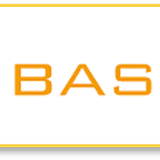Pengaruh Partisipasi Penyusunan Anggaran Terhadap Kinerja Manajerial Pada RSUD Wilayah Bogor
DOI:
https://doi.org/10.24912/je.v25i2.662Abstract
This study aims to determine and analyze the role of participation in budgeting on managerial performance whereas in this study there is a moderating variable that is Reward in the BLUD RSUD Bogor region. The data obtained were processed using Microsoft Excel 2018 and Eviews. The sampling technique with purposive sampling technique. The results obtained after a study of 85 respondents using multiple linear regression analysis models explained that there is an influence of participation in budgeting on managerial performance. Budgeting can act as a planning and performance criteria, where the budget can be used as a control system to measure managerial performance. This means that participatory budgeting can be assessed as a managerial approach that can improve the performance of each manager as an individual, and reward does not affect managerial performance. Continue to evaluate the performance using the Balanced Scorecard seen from the main performance indicators and achieve performance for the realization of performance achievements included in the predicate is very good in 2017-2018.
References
Al Qur’an
Afendi, A. (2018). Pengaruh Variabel Makroekonomi Terhadap Jumlah Penerimaan Zakat di Badan Amil Zakat Nasional ( Baznas ) Pusat Tahun 2012 – 2016, Jurnal Muqtasid IAIN Salatiga 9(1). http://dx.doi.org/10.18326/muqtasid.v9i1. 54–69.
Ahmad, Z. M. (2011). Pengaruh Indikator Makroekonomi terhadap Besarnya Jumlah Zakat yang terkumpul di Lembaga Amil Zakat Dompet Dhuafa Republika tahun 1993-2009.
Ahmed, B. O., Johari, F., and Wahab, K. A. (2017). "Identifying the poor and the needy among the beneficiaries of zakat Need for a zakat-based poverty threshold in Nigeria". International Journal of Social Economics 446-458. https://doi.org/10.1108/IJSE-09-2015-0234.
Andriyanto, I. (2011). "Strategi Pengelolaan Zakat Dalam Pengentasan Kemiskinan". Jurnal Walisongo STAIN Kudus, 19, 25–46.
Anggara, M. S. (2017). "Pengaruh Variabel Makroekonomi Terhadap Peningkatan Penerimaan Pendapatan Asli Daerah Kota Pekanbaru". Jurnal Online Mahasiswa Fakultas Ekonomi Universitas Riau, Vol. 4 No., 898–913.
Azis, H. A., dan Widiastuti, T. (2017). Zakat dan Pemberdayaan (Edisi Pert). Surabaya: Airlangga University Press.
Chapra, U. (2018a). Islam dan Pembangunan Ekonomi (Indonesian). Solo: Aqwam Jembatan Ilmu.
Chapra, U. (2018b). Sistem Moneter Islam (Indonesian). Depok: Gema Insani.
Cokrohadisumarto, M. (2019). "A study of Indonesian community’s behaviour in paying zakat", Journal of Islamic Marketing (59). https://doi.org/10.1108/JIMA-10-2018-0208.
Fitriah Nurmu’minah, S., Asmara, A., dan Lubis, D. (2015). "Dampak Makroekonomi pada Penghimpunan ZIS Baznas Pusat". Iqtishodia Jurnal Ekonomi Islam Republika.
Huda, N. (2012). Keuangan Publik Islam (Pertama). Jakarta: Kencana.
Kasri, R.A. (2013). "Giving Behaviors In Indonesia: Motives And Marketing Implications For Islamic Charities", Journal of Islamic Marketing vol. 4 No. 3 pp.306-324. DOI 10.1108/JIMA-05-2011-0044.
Lidya, N. M., dan Maryati, T. (2015). "Analisis pengaruh inflasi, kurs , suku bunga dan bagi hasil terhadap deposito pada pt. bank syariah mandiri 2007-2012", (7), 735–745. Jurnal Trisakti Semnas Cendekiawan.
Mankiw. (2007). Macroeconomics (Sixth Edit). New York: Harvard University.
Obaidullah, M. (2016). "Revisiting Estimation Methods Of Business Zakat And Related Tax Incentive", Journal of Islamic Accounting and Business Research Vol. 7 No. 4 pp.349-364. DOI 10.1108/JIABR-10-2014-0035.
Omar, M. Bin. (2016). "Konsep Zakat Dan Peranannya Terhadap Masyarakat Sejagat" ِ. Muzakarah Fiqh & International Fiqh Conference, (November), 68–86.
Saadillah, R. (2019). "Impact of Inflation , Interest Rate , and Industrial Production Index ( IPI ) on the Amount of Zakat in Central Baznas Period", 2019, 1371–1385. The 2nd International Conference on Islamic Economics, Business, and Philantrophy 2nd ICIEBP. https://doi.org/10.18502/kss.v3i13.4291.
Saikh, S.A. (2015). "Welfare potential of zakat: an attempt to estimate economy wide zakat collection in Pakistan", The Pakistan Development Review, Vol. 54, No. 5 Desember 2-4 (winter 2015) pp. 1011-1027.
Sloane-White, P. (2019). Collecting, Resisting, and Paying Corporatized Zakat in Contemporary Malaysia. In Lemière S. (Ed.), Illusions of Democracy: Malaysian Politics and People (pp. 271-286). Amsterdam: Amsterdam University Press. doi:10.2307/j.ctvnjbgtv.19.
Rahmat, R. S., and Nurzaman, M. S. (2019). "Assesment of zakat distribution A case study on zakat community development", (1989). International Journal of Islamic and Middle Eastern Finance and Management Vol. 12 No. 5, 743-766. https://doi.org/10.1108/IMEFM-12-2018-0412.
Rio, B. (2016). Pengaruh Indikator Makroekonomi: Inflasi dan Nilai Tukar Rupiah Terhadap Jumlah Zakat Terkumpul di Lembaga Amil Zakat Dompet Dhuafa Periode 1997-2013, Jurnal Ekonomi Syariah Teori dan Terapan Vol. 3 No.7 Juli 2016, 584–599.
Rosadi, D. (2012). Ekonometrika dan Analisis Runtun Waktu Terapan dengan Eviews. Yogyakarta: ANDI Yogyakarta.
Sinay, L. J. (2014). Pendekatan Vector Error Correction Model Untuk Analisis Hubungan Inflasi , Bi Rate Dan Kurs Dolar Amerika Serikat Vector Error Correction Model Approach to Analysis of the relationship of Inflation , BI Rate and US Dollar, Jurnal Barekeng Ilmu Matematika dan Terapan 8(2), 9–18.
Skintzi, G. (2018). "Analysis of the Industrial Sector based on Industrial Production and Turnover Indices" (Oct 2018). KEPE, Greek Economic Outlook 2012-2019, (November).
Sugiyono. (2018). Metode Penelitian Bisnis Pendekatan Kuantitatif, Kualitatif, Kombinasi, dan R&D. Bandung: Alfabeta.
Sulistiana, I. (2017). Model Vector Auto Regression ( VAR ) and Vector Error Correction Model ( VECM ) Approach for Inflation Relations Analysis , Gross Regional Domestic Product ( GDP ), World Tin Price , Bi Rate and Rupiah Exchange Rate, IJBE: Integrated Journal of Business and Economics. 17–32.
www.bi.go.id
www.bps.go.id
www.kemendag.go.id
www.baznas.go.id
Downloads
Published
How to Cite
Issue
Section
License
Copyright (c) 2020 Jurnal Ekonomi

This work is licensed under a Creative Commons Attribution-NonCommercial-ShareAlike 4.0 International License.
This journal provides immediate open access to its content on the principle that making research freely available to the public supports a greater global exchange of knowledge.

This work is licensed under a Creative Commons Attribution-NonCommercial-ShareAlike 4.0 International License.


















